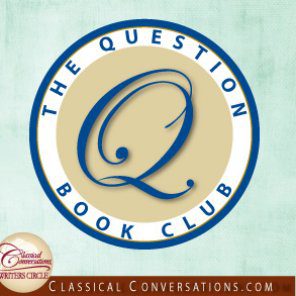Chapters Four and Five – Reading and Writing
Three Big Ideas about the Three Rs
by Cara McLauchlan
“As parents and teachers, we can form intimate bonds with children by loving the books they love and listening carefully to their ideas.”
– Leigh Bortins, The Question (pg. 76)
Legend has it that the expression of the “Three Rs” was a cocktail party toast gone wrong. According to urban legend, Sir William Curtis, a London politician in the late 1700s, coined the expression infamously, disclosing his lack of intelligence and for which he was later painfully mocked.
For me, to focus on the three Rs was the very first advice I received as a homeschooler. Everyone said, “Just focus on the three Rs of reading, writing, and arithmetic and that’s it.” I love that advice. That was such a relief. I might not be able to do everything well, but doing three things was definitely within my reach.
In those early days of homeschooling we did focus on the three Rs. We read lots of great books. We picked out a simple math curriculum and completed a page a day. We kept a nature journal and recorded our thoughts about what we saw. It was not fancy, but it was perfect.
Big Idea Number 1 – Little Things Are Big
Those little things of reading, writing, and arithmetic done well are huge. Here is a bit of treasure from The Question about the small things: “It is often the case that the greatest of achievements are built upon the seemingly smallest of skills. ….Students who write and read well also reap the rewards of living richly knowledgeable, imaginative, and creative lives.” (pg. 92)
Is that not our greatest hope for our kids—that they will live richly knowledgeable, imaginative, and creative lives? What a gift to show them how to do that well through the basics.
Big Idea Number 2 – Blaze a Big Trail
Even though my son is twelve, almost thirteen, we still read together aloud at night. Lately, we have been reading Edgar Allen Poe stories and it has been fun to wade through the lush, waist-deep language of Poe’s writings. While the stories are riveting, the language is what I call “chewy”—meaning it requires concentration with every word and sentence structure.
I was not sure if he was enjoying it, or even comprehending the story line until recently. We were having a discussion about someone’s personality and he said, “Oh Mom, he speaks like Edgar Allen Poe writes. Depressing, but fascinating.”
Great writing does that to you—it creates a shorthand language, a kind of little secret speak, a means of connection only found through stories and books. My hope is to give my son lots of stories, thoughts, and dreams through excellent books. I want to bathe him in fascinating experiences through reading—blazing a big trail of ideas to draw from in life. I do this because I know my own ideas are not enough.
Leigh says in The Question, “Our lifetime of experience is not enough to equip our children and to answer these questions and to become good leaders. Instead they must experience vicariously the joys of lifetimes so that they can approach the world with empathy.” (pg. 75)
Big Idea Number 3 – Cultivate Big Thinkers
This year, I am grateful to watch the “thinking fireworks” happen. Within the Challenge program, part of our daily work is to discuss big ideas where I ask my son lots of questions and he thinks his responses out loud. Out of this come big ideas about creation, evolution, faith, science, moral dilemmas, worldviews, and more.
We have had amazing discussions. I see my son “try out” thoughts and then work his way through them. Our literature discussions have allowed us to see issues from all sides, from the smallest to the biggest thoughts, from what God would think to what a child would think. It has been an awesome practice in thinking big. What a gift—the time and space to think vastly, to consider new perspectives, to debate them within safe walls where the stakes are low and the reward is high.
Thanks Sir William
Despite Sir William’s buffoon-style moment, I am grateful for his three Rs that we are still talking about today. My guess is that we will continue to love and uphold the three Rs as important despite what technology or politics may bring.
We have learned many things through homeschooling, without question. But I think the thing I have loved the most is that we are on a “thinking journey”—that no matter what difficult subject we encounter, we have learned how to think.
One Good Question:
How are you cultivating a big thinker?
The Question Book Club Articles
Introduction – The Question Expedition
Chapter One – Dorothy, Doubts, and Dialectic
Chapter Two – I Heart Aristotle
Chapter Three – The Extraordinary FAQs
Chapters Four and Five – Three Big Ideas about the Three Rs
Chapters Six, Seven, and Eight – What’s Your Big Hairy Monster?
Chapters Nine, Ten, and Eleven – Who Is Your Hero?
Conclusion – The Best Question




